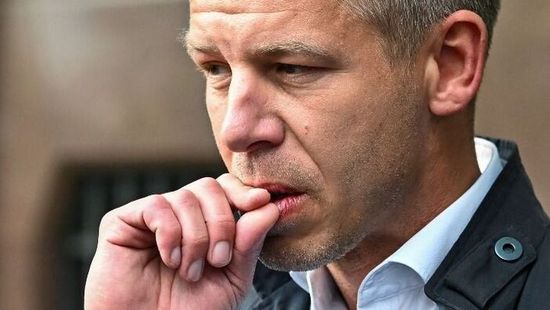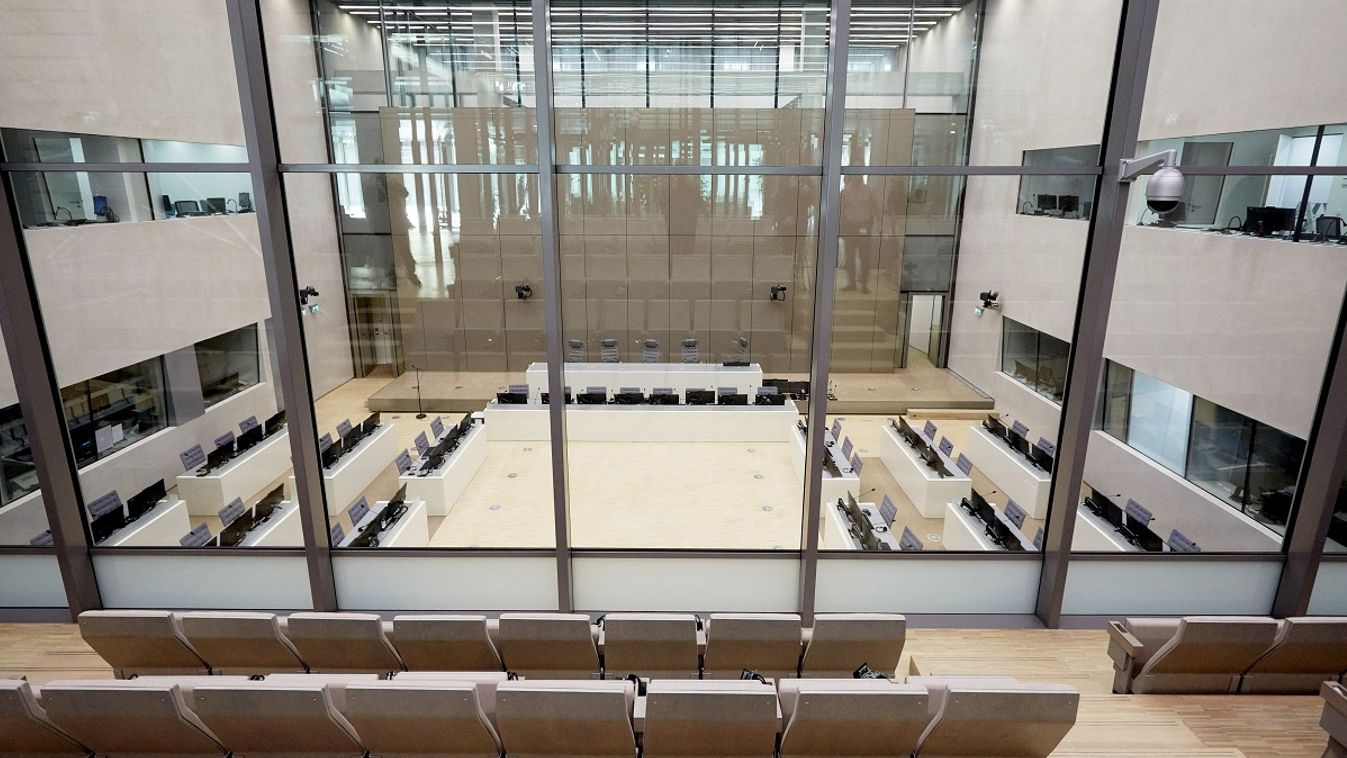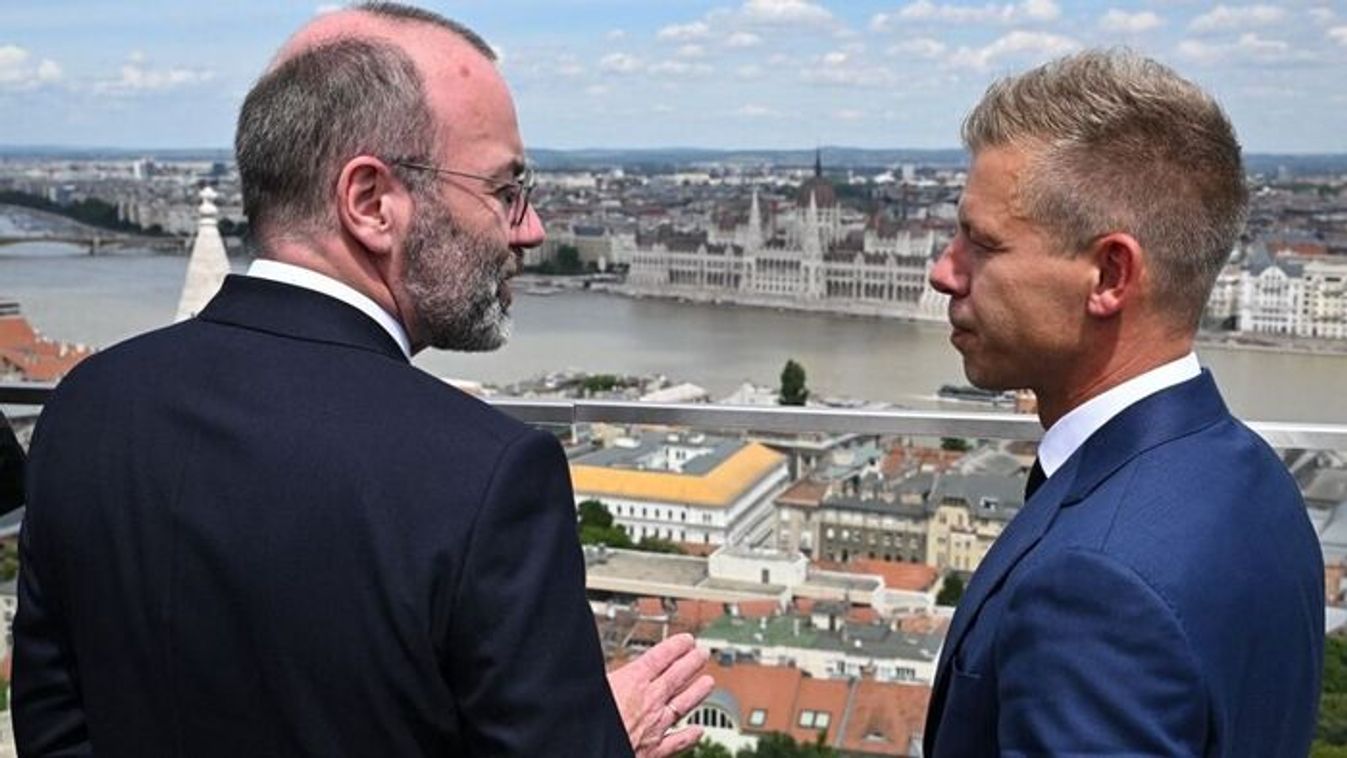Ez is napvilágot látott: Magyar Péter tudhatta, milyen bosszút forralnak Magyarország ellen

A szakértő szerint közölték a Tisza Párt elnökével, mi a feltétele a hivatalban maradásának.

"The conflict may thus highlight the need to adjust the ICC Statute to the realities of contemporary warfare" - Professor Carsten Stahn pointed out in a conversation with Lénárd Sándor on the international legal questions of the Russia-Ukraine war.

The conflict between Russia and Ukraine culminated into a full-scale and still ongoing war after the Russian attack in February. Besides the geopolitical and security considerations, the war of course concerns many areas of international public law. Let’s begin our conversation with the attack itself. International lawyers unanimously agree that the act of Russia is unjustified and amounts to a so-called aggression that violates the fundamental principles of international law. However, the U.N. Security Council that is the key institution of the collective security mechanism, has been paralyzed in the face of the Russian veto. What other institutions and channels do the international community that can act upon in such cases? What are the previous examples?
One of the most striking features of the conflict is quick and multi-faceted reaction to the war. There is the famous saying that the law falls silent in times of crisis. At this moment, we are witnessing the opposite. The war is not only fought through weapons, but through law and legal institutions. The fact that it has been branded as an act of aggression by so many actors, only days after the invasion, is remarkable. In its justification,

Russia has relied on many concepts that Western powers have used in the past to justify armed intervention,
such as self-defence, protection of nationals or minorities or prevention of atrocities. These arguments have been met with skepticism by those, who have been at the receiving end of such interventions. Through their interventions in Iraq, Afghanistan or Libya, Western powers have contributed to mistrust and perceptions of double standards in the application of prohibition against the use of force.
This makes it so hard to reclaim and affirm its universality now, without a certain sense of hypocrisy.
In light of these circumstances, the strong legal reaction in the UN General Assembly against Russian actions, and their legal justification, is highly significant.
The fact that the General Assembly used its own powers, shows that ‘water’ may ultimately ‘finds its way’, even if the Security Council is blocked. The resolution follows the model of the Uniting for Peace Resolution, adopted in the Korean War in 1950. It qualifies the invasion as an act of ‘aggression’ and condemns the recognition of the Donetsk and Luhansk regions as a violation of the UN Charter.
It makes it crystal clear that the use of force is an attack on the identity of Ukraine and its commitment to democracy,
rather than a ‘special military operation’ with a protective or humanitarian aim. It has not only an important expressive function, but concrete legal implications, even though it is not binding per se. The ICJ has relied on it in its order on provisional measures, in order establish a risk of irreparable prejudice and urgency. It stands as important precedent for legal issues arising as a consequence of the war, such as the justification of sanctions and counter-measures, status and nationality issues, criminal accountability or potential reparations.
Ukraine initiated a lawsuit before the ICJ based on the Genocide Convention. How do you see the legal basis and the outlook of this lawsuit?
The ICJ case is a paradigm example of Ukraine’s strategy to combat war through law. The goal is laudable. The dilemma is the narrow jurisdictional basis of the Court. In essence, the question is whether Russia’s alleged justification of the ‘special military operation’ as measure to combat ‘genocide’ qualifies as a dispute over the interpretation, application or fulfillment of the Genocide Convention. Ukraine used clever lawyering. It alleged a new right ‘not to be subject to a false claim of genocide’ and requested interim measures to stop the consequences.
The case highlighted
the dilemma between the constraints of law and the moral urge not to stand passive in the face of gross injustice.
The Court had previously declined jurisdiction under the Genocide Convention in use of force cases brought against NATO member. The present order was visibly shaped by this context. This was openly recognized by Moroccan Judge Bennouna. He acknowledged that he voted in favor of the order because he ‘felt compelled by this tragic situation, in which terrible suffering is being inflicted on the Ukrainian people’, although the Genocide ‘Convention does not cover, in any of its provisions, either allegations of genocide or the use of force allegedly based on allegations’.
The immediate consequences of the Order are far-reaching, irrespective of the final outcome of the case or actual compliance by Russia. The order creates a new legal reality.
It makes it clear that any continuation of the invasion marks a violation of international law, namely a contravention of a binding ICJ decision.
The long-term consequences are more uncertain. Does such an approach strengthen or weaken dispute settlement under the Genocide Convention? Will the Court uphold such a broad interpretation in other cases, where non-Western states seize the Court with requests regarding violations of their right ‘not to be subject to a false claim of genocide’?

Unfortunately, we are getting an increasing number of reports on violations of the so-called “jus in bello” as well as of the international humanitarian law. How do you see the domestic or international mechanisms that can potentially serve as avenues for individual accountability and criminal responsibility for these acts?
The war counts already as
one of the most documented conflicts.
We are seeing evidence of attacks on civilian targets, cultural property or protected sites, efforts to terrorize the civilian population, hostage-taking or use of weapons that cause unnecessary suffering. The biggest challenge will not be the quantity of evidence on violations or crimes, but their authentication, verification and the linkage evidence to individual perpetrators. One option is the newly established Commission of inquiry by the Human Rights Council. It is mandated to collect, consolidate and analyse evidence of violations and abuses ‘in view of any future legal proceedings’. The information and material gathered by such types of commissions in other contexts, such as Syria or Myanmar, has been useful to support legal proceedings. It is complemented by work of private organizations, such as Bellingcat, which have been extremely successful in reconstructing crime patterns and links to perpetrators through open source analysis in other contexts (e.g. MH17). These processes may provide leads for domestic investigations and prosecutions, including the exercise of universal jurisdiction. In addition to Ukraine, a number of domestic jurisdictions, such as Germany or Sweden have already indicated their willingness to investigate or prosecute potential war crimes or crimes against humanity. Such investigations take time and may ultimately only capture a limited of perpetrators. But they send an important message that crimes are being monitored or sanctioned. Ultimately, they may restrict travel options and safe havens, and/or offer prospects of access to justice for victims.
What are the challenges of these procedures?
One common challenge is to get access to crime sites and witnesses in ongoing conflict, and to coordinate efforts with ongoing ICC investigation, in order to avoid that the respective mechanisms compete for the same witnesses, contaminate evidence or duplicate work. The ICC has a head start, since it has been involved in the situation since 2014. However, its jurisdiction over war crimes is limited by statutory constraints. The Court lacks express jurisdiction over the use of certain weapon categories, such as cluster munition or chemical weapons, and can only prosecute the consequences of their use. Attacks on demilitarized zones, such as humanitarian corridors, are only captured by general provisions protecting civilians. The conflict may thus highlight
the need to adjust the ICC Statute to the realities of contemporary warfare.
The Prosecutor of the ICC already announced his intention to examine the “situation” that was created by this war. However, neither Russia nor Ukraine ratified the Rome Statute of the International Criminal Court, but Ukraine filed two declarations in 2014 that recognize the jurisdiction of ICC in the territory of Ukraine. How do you see the jurisdiction of ICC? What are the other preconditions for the ICC to exercise its jurisdiction? How does the ICC carry out its investigations and try the cases?
The ICC has a solid jurisdictional basis. In 2015, Ukraine granted the ICC jurisdiction over acts ‘committed in the [entire] territory of Ukraine since 20 February 2014’ for an indefinite period. This means that the ongoing invasion comes within the ICCs jurisdiction, although neither Ukraine nor Russia, is a state party. This was supported by an unprecedented collective referral of 41 states to the Court, which has enabled the Prosecutor to speed up proceedings. It shows the wide support for the Court in this context.
Ukraine is a ‘make or break’ case for the ICC.
The Prosecutor has seized the moment to request additional support from states.
Investigations and prosecutions pose numerous challenges, in addition to capacity or budgetary constraints. Although the ICC has demonstrated in other contexts that it is able to collect evidence, interview potential witnesses or identify chains of command in situations of going conflict, it is far more difficult to obtain linkage evidence, i.e. the evidence necessary to connect individual perpetrators to specific crimes. Both, domestic jurisdictions and the ICC, are likely
to face difficulties to get hold of suspects, as long as they are protected by parties to the conflict.
This is clearly shown by the experience of the MH17 investigation. While the Court may be able to issue warrants of arrest, it will be a challenge to execute them, since the ICC relies on state cooperation to arrest individuals. Unlike the MH17 tribunal, it cannot try persons in absentia.
Is there any previous precedent of examining individual international criminal responsibility for aggression? What potential venues can serve for this in this case?
One weakness of the Court is its limited jurisdiction over the crime of aggression. In the negotiation of the aggression amendments, several states, including permanent members of the Security Council, have actively lobbied to exclude the possibility of the ICC to exercise jurisdiction over the crime of aggression ‘in respect of a State that is not a party’ to the Statute (Art. 15 bis (4)). The price is now becoming apparent. Although many states, including Ukraine, have included the crime into their domestic jurisdiction, only a handful of states have adopted legislation, enabling the exercise of universal jurisdiction (e.g., Samoa) or conditional universal jurisdiction (Austria, Croatia, East Timor, Moldova). Its exercise has been impeded by protection of personal immunities or concerns over the political nature of prosecutions. A rare exception is the case against former President Viktor Yanukovich in 2019 before the District Court in Kyiv, which resulted in his conviction for complicity in aggression in the invasion of the Crimea and Eastern Ukraine in absentia proceedings. He is only the second former head of state convicted for the crime.
There are numerous ideas to remedy the ‘aggression gap’.
One proposal is creation of new special tribunal on aggression. However, such a targeted tribunal would most likely replicate many of the weaknesses of domestic prosecutions. It would lack enforcement power, face immunity challenges, and selectivity concerns, if it is only about crimes by specific individuals or by one side.
It also poses deeper legitimacy questions about double standards of the West in relation to international criminal justice, given the lack of political will to take similar steps in relation to unlawful uses of forces by Western leaders, such as the invasion of Iraq.
Another idea is the creation of a specialized Court chamber within the legal system of Ukraine. It offers the prospect of greater proximity to the region, affected communities or Ukraine’s own legal culture. However, the feasibility of such an approach would depend significantly on the political context, including the necessary impartiality and independence, as well as security and domestic capacity. It would be artificial to separate jurisdiction over aggression from crimes against humanity or war crimes.
However, in my view, it is premature to think about ideal scenarios for aggression prosecutions, while Ukrainians are fighting for their survival.
We have already seen many examples of successful trials that either the ICC or other ad hoc international criminal court carried out in the aftermath of armed conflicts. However, none of them included a conflict that a Member of the Security Council has been involved. How do you see the chances of just and successful trials this time?
This is indeed a novum. The requests for warrants of arrest on 10 March 2022 against members of the South Ossetian administration for crimes committed in Georgia mark a novel step.
This the first time that the ICC seeks to arrest nationals of a permanent member of the Security Council.
The strong backlash of the US against investigations of US nationals in the context of the situation in Afghanistan might give an indication of the obstacles that the Court is likely to encounter, the more it proceeds. However, I would argue there is value in proceeding, even though we may not yet see clear chances of arrest of the most responsible leaders. First, an independent and impartial investigation is critical to counter legal disinformation and misinformation, which are part and parcel of strategic warfare more than ever before. Second,
ICC investigations may have an important spin-over effect, facilitating additional domestic investigations and prosecutions.
We have already seen this, with other states starting structural investigations. Finally, lessons from the ad hoc tribunals or the Bashir case make it clear that international justice requires a long-term perspective. With political change and transformation, the context might change radically, sometimes more than a decade after the facts.